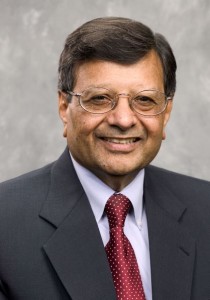Since the economic reform of 1991 (what is also referred to as India’s second independence) we have produced more than a million millionaires and dozens of billionaires. This unprecedented level of wealth creation has also consequently increased the wealth inequality at an exponential level and there does not seem to be any end in sight for the slow down or the decline of wealth creation in the modern age. The rich will get richer.
This new wealth in the modern age especially anchored to IT services and the cell phone revolution has generated several unicorn startups such as Flipcart, Paytm, and Snapdeal. Most of them were started by smart young entrepreneurs who are also technology savvy. Of course, several have lost their fortunes as fast as they have accumulated. This was especially evident in theSilicon Valleyduring the dot com boom and eventual dot com bust that occurred in less than one decade. You were a millionaire one day and homeless the next day.
The wealth creation in the modern age is different from the past. In the old days, wealth was inherited through family succession in monarchy, land ownership (Jamindari), and business groups. Inherited wealth meant you were the custodian and the steward of the wealth and the institution that generated wealth. You were given values by the family and the faith to make sure you took care of your key stakeholders such as the community, employees, suppliers, and customers. The purpose of the business was to serve the society while preserving the wealth for future generations. Each generation was given the mandate that doing well by doing good is the only way to succeed in business. Of course, there were exceptions to this purpose driven values in which the next generation actually destroyed the institution, especially among the Maharajas in India.
The wealth in the modern age does not seem to have this shared value mission (profit, people, and planet) where both the entrepreneur and the society at large benefit. In the Digital Age, market valuations are unreal, created very fast and lost very fast not just by the entrepreneur but also by other investors.
It is safe to say that new age entrepreneurs have created wealth without values. This is similar to wealth created by the gambling or drug trafficking businesses. What matters most to the entrepreneur is the creation of economic wealth and often at the expense of spiritual or societal wealth. In my opinion, wealth without meaning is meaningless. I find that many wealthy entrepreneurs are often lonely and feel empty inside. I have also found that many successful entrepreneurs are often isolated by the community if they do not invest in it.
Capitalism is a good force for human development if it is utilized wisely. Capitalism is like the id or the energy. In Freudian psychology, the entrepreneur is the ego. Ego needs a super ego to counterbalance its self-destructive tendency. The super ego (how you should behave vs. how you wish to behave) is often guided by faith, by education in liberal arts or by the family and the community. To use another analog, capitalism is like a wild river which can be a destructive force unless it is banked and its waters are channeled for serving the community at large. Most great civilizations are located at the banks of great rivers where education, arts, and commerce flourish together.
Wealth in the modern age has created a nuevo rich class at a very young age. Without proper values, this nuevo rich class has acquired several self-destructive habits including hubris (arrogance), flaunting, and class distinctions. Wealth without values is of course not limited to India. One feels the same way in New York, in Silicon Valley, or in Israel and in China. Entrepreneurship without checks and balances can go wild as we have witnessed in the Enron and the Satyam case studies. In some ways,India’s mandatory CSR tax on net income and its disclosure in shareholder annual reports have made the modern age wealthy individuals to be mindful of societal problems and potential degradation of the ecosystem that nurtures wealth creation.
What is needed, therefore, are several antidotes to hubris. First, encourage servant leadership. Servant leadership believes that you are here to serve others and not the other way around. It means your purpose in life is to make ordinary people extraordinary. It also means latching on to a guru who will constantly remind you that the ecosystem has more to do with your success than you, and to make you more humanitarian. In fact, in the old days, all good monarchs sent their children to study under the best philosophers and academics to learn how to be compassionate and humanitarian to counterbalance the absolute power of monarchy.
Three traits of all great leaders are passion, compassion, and competence. Caring for others is a great counterbalance to self-interest. I am a firm believer that compassion can be learned through immersion and experiences and through engaging in a social cause.
In our book, The Firms of Endearment, my colleague Rajendra Sisodia and I found that companies that were stakeholder driven (community, customers, suppliers, and employees) actually outperformed financially compared to companies that were only shareholder driven. We compared our companies (many located in small communities) with companies that were shareholder driven (included in the Good to Great book by Jim Collins) over 15 years (1995 to 2010), The Firms of Endearment (FOE) companies generated average annual total return of more than 40 percent as compared to 20 percent for the companies in the Good to Great book, and less than 10 percent for the S&P 500 index.
In short, making money while serving the society at the same time is actually good business. It also means serving the society is the real purpose of business and wealth creation is the reward society bestows on you.
—————————————————–
*Dr. Jagdish N. Sheth is a renowned scholar and world authority in the field of marketing. His insights on global competition, strategic thinking and customer relationship management are considered revolutionary. He is currently the Charles H. Kellstadt Chair of Marketing in the Goizueta Business School at Emory University.








1 comment
[…] Philip Kotler Presidential award. The award was presented by distinguished Emory Professor Dr. Jagdish Sheth and Executive Director of Academy of Indian Marketing Jayant Shah. Madhu Sheth was part of the team […]